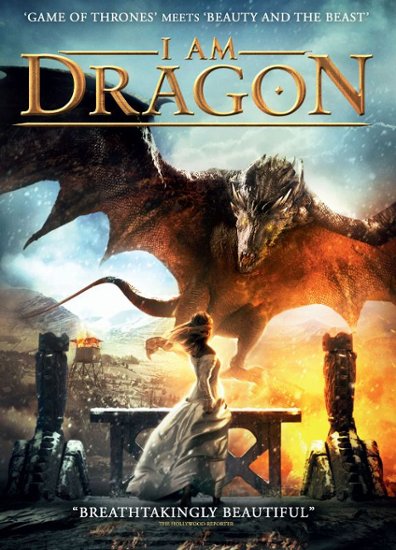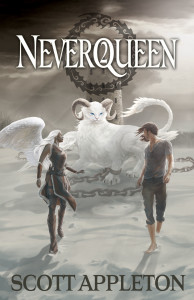Expectations. We are people of expectations whether we want to admit it or not. When we go to read a book or watch a movie we have an expectation of the story that must be made if we are going to positively reinforce it to people that we know.
When I started off my writing career I did my best to craft a story that would resonate with a broader audience. But truth be told I didn’t understand how to do that, and now I understand that you should not do that. The story doesn’t necessarily need to be divisive but it should be thought-provoking and challenging to folks of a different world view.
Someone who picks up a harlequin romance is going to have a different expectation than one who is looking for a Christian Amish romance. On the one hand a conservative reader might appreciate the lack of physical description and sexuality in an Amish romance. But on the other hand another reader might have an expectation of realism. To them the Amish romance is rediculously tame, to the point that they find it unrealistic and cannot enjoy the story.
Reader expectation is everything.
For those of you who have watched the first Maze Runner movie, you will appreciate what I’m about to say. If you thought that it was a dystopian along the lines of the Hunger Games, as I did, then when movie two came out you were severely disappointed when it turned into a zombie apocalypse. Your expectations were let down and you felt deceived.
Amidst the muck of politically-charged media-driven fiction, a few stories highlight what’s beautiful.
When I say muck, I am referring to that moment when I was watching a show with my kids, in this particular case it was the show Voltron, when the last episode introduced a gay couple wedding. I am referring to the Netflix original series the dragon prince, which had a great story going for it but in the second season decided to introduce a prominent lesbian couple. In the absence of strong traditional male-female romantic interests these pointedly emphasized relationships reek of political correctness. Thankfully there have also been some examples recently of stories that do themselves service by understanding their audience and delivering a story that their audience loves because it resonates with their values.
As a parent, I find it increasingly frustrating when I cannot simply enjoy the show without worrying that a politically charged message is going to be thrown in my kids’ faces.
This post is not a rant. It is not even a disparagement to those types of stories that I find offensive to my kids. Although I will note that my kids were the first to find it confusing and offensive because it went against their very nature. It is interesting that in the simple thinking of children is often found the greatest truth.
As a writer I have often struggled to understand my own audience. Even now as I am re-writing my first novel I have struggled with some elements of the story that could’ve been crafted in a mature fashion, but instead I wrote in a simplistic way so as not to offend certain readers. I have experimented with re-writing some of those sections of the story in a more adult manner, and in some respects the story is far better for it. But I will let the readers be the judge. My job is to make people think without breaking down their sense of morality. If my stories are successful than they encourage my readers in the ideals that they strive to live out.
I think that the recent Toy Story 4 was a fantastic example of a creative team who understood their audience. I saw an interview on the BBC where someone was complaining about the “lack of diversity” in the characters. Her complaint was laughable really, because it centers around a bunch of toys! But I found it interesting that she complained about one toy that didn’t seem as strong to the feminist perspective. In my opinion that element of the story was what made the film as great as it was. And you know what? My kids absolutely loved it.
When a creative team understands the audience that they are appealing to, then the story resonates and impacts the audience’s soul. If, instead, the creative team seeks to placate a critic, then the story loses its punch.
I am fascinated by this. The closer we get to strongly-set morals, and the closer we get to a familiarity in the story that challenges us and makes us stronger or encourages us, the more impact that story has on us.
For some people that set of morals is going to look entirely different than it does for another audience. But that’s okay. Not all stories are made for all people. Neither should they be.
Controversy generates hype. Similarities create relationships. Relationships are built on trust, and relationships only grow deeper the longer they last.
Q: What expectations have you recently enjoyed or found disappointing?
 Are you tired of movies that rely on action scenes to keep your interest? I am. Though I do appreciate action when it is applied properly, the heart of a story is never the battles, it is the soul of the characters and the arc of mystery, intrigue, or romance that they are following. You could say that the drama is the most important aspect of any good story. It grabs your attention and holds you through to the end because it gives you human elements that you can relate to. You may not understand what it is like to fight in a war, or touch a majestic beast, or be wounded in battle. But you probably do understand what its like to fall for a beautiful woman, or lose one you love, to struggle financially, or to battle physical illness or handicap.
Are you tired of movies that rely on action scenes to keep your interest? I am. Though I do appreciate action when it is applied properly, the heart of a story is never the battles, it is the soul of the characters and the arc of mystery, intrigue, or romance that they are following. You could say that the drama is the most important aspect of any good story. It grabs your attention and holds you through to the end because it gives you human elements that you can relate to. You may not understand what it is like to fight in a war, or touch a majestic beast, or be wounded in battle. But you probably do understand what its like to fall for a beautiful woman, or lose one you love, to struggle financially, or to battle physical illness or handicap.


Recent Comments